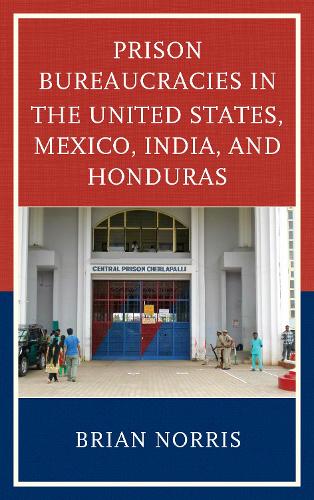
Prison Bureaucracies in the United States, Mexico, India, and Honduras
(Hardback)
Publishing Details
Prison Bureaucracies in the United States, Mexico, India, and Honduras
By (Author) Brian Norris
Bloomsbury Publishing PLC
Lexington Books
19th February 2018
United States
Classifications
Professional and Scholarly
Non Fiction
Comparative politics
365.068
Physical Properties
Hardback
294
Width 159mm, Height 237mm, Spine 23mm
630g
Description
Modern criminal justice institutions globally include police, criminal courts, and prisons. Prisons, unlike courts which developed out of an old aristocratic function and unlike police which developed out of an ancient posse or standing army function, are only about 200 years old and are humanitarian inventions. Prisons, defined as modern institutions that deprive the freedom of individuals who violate societies most basic norms in lieu of corporal or capital punishment, were near universal at the dawn of the 21st century and their use was expanding globally. The US alone spent $60 billion on prisons in 2014. Prison Bureaucracies addresses two fundamental questions. Do prisons in Christian, Hindu, and Muslim societies separated by space and level of socioeconomic development follow a common evolutionary path Given that differences in prison structure and performance exist, what factorsresources, laws, leadership, historical accident, institutions, cultureaccount for differences Based on more than 150 interviews conducted in ten international trips with prison administrators in 15 male state prisons in the US, Mexico, India, and Honduras, Norris provides ethnographic descriptions of prisons bureaucracies that are immediately recognizable as similar institutions, but that nonetheless possessed distinctive forms and developmental trajectories. Economists and political scientists have argued that incentives provided by institutions matter for good or bad public administration, and this is undeniable in the prisons of this study. But institutional incentives were one factor among many affecting the form and function of the prisons and prison systems of this study.
Reviews
A culture-sensitive description of select prison administrations in three continents, narrated skillfully. -- Ujjwal Kumar Singh, University of Delhi
Norris research on prisons provides an excellent account on how prisons work. It states rich arguments that appropriately speak to many disciplines and invites to multiple thoughts on the issue of what is, and ought to be, the appropriate role of the state when imprisoning its citizens. The case studies in the bookthe United States, Mexico, India, and Hondurasare thoroughly analyzed and documented. Norris succeeded in constructing coherent and solid arguments from the vast information that he recollected. This book is a must read for those interested on bureaucracies. -- Vidal Romero, ITAM
Author Bio
Brian Norris is assistant professor in the Department of Criminal Justice at the Citadel.
